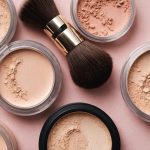Understanding Skincare Layers
When it comes to a skincare routine, understanding skincare layers is crucial for achieving maximum benefits. Layering products allows each formulation, such as hydrating serums and SPF moisturizer, to work effectively while addressing different skin concerns. Hydration plays an essential role in creating a radiant complexion.
The Significance of Layering
Skincare layers serve different purposes. For example, serums target specific issues, while moisturizers provide overall hydration. Proper layering ensures that each product penetrates effectively, enhancing their benefits. Starting with the lightest formulation, such as a hydrating serum, allows active ingredients to be absorbed more quickly.
Additional reading : 10 Must-Have Wardrobe Staples for a Chic and Professional Look at Work
Interaction of Formulations
Different formulations interact uniquely with each layer. Hydrating serums, rich in ingredients like hyaluronic acid, plump and moisturize, preparing the skin to effectively absorb more viscous products, like an SPF moisturizer. SPF moisturizers, in turn, protect the skin from harmful UV rays, offering a shield against environmental damage.
Emphasizing Hydration
Incorporating a hydrating serum into your routine significantly impacts skin hydration, resulting in a glowing complexion. Well-hydrated skin looks smoother, allowing makeup to apply more evenly. By understanding the significance of skincare layers, you maximise the effectiveness of your routine, promoting both protection and radiance.
Additional reading : The Ultimate Guide to Choosing the Ideal Foundation for Pale Skin with Pink Undertones
Benefits of Hydrating Serums
Incorporating hydrating serums into a skincare routine is pivotal for improving skin texture. The immediate impact of these serums lies in their ability to boost skin hydration, resulting in smoother, plumper skin. This effect is primarily due to key serum ingredients like hyaluronic acid, glycerin, and aloe vera, renowned for their moisture-retention properties.
How Hydrating Serums Improve Texture
Hydrating serums can transform textured, dry skin into a supple, soft canvas by delivering intense moisture at deeper skin levels. With regular use, these serums enhance the skin’s overall appearance, making it more responsive to subsequent skincare layers.
Key Ingredients to Look For
When selecting hydrating serums, it’s essential to focus on effective ingredients. Hyaluronic acid is celebrated for drawing water into the skin, providing that coveted dewy look. Glycolic acid can aid in gentle exfoliation, removing dead skin cells and improving texture. Aloe vera is another excellent addition, known for its soothing and calming effects.
Impact on Glowing Skin
The infusion of hydration by these serums significantly contributes to achieving glowing skin. Well-hydrated skin reflects light better and can visibly reduce the appearance of fine lines, giving your complexion a youthful radiance.
Selecting the Right SPF Moisturizer
Choosing an SPF moisturizer for your daily skincare routine is crucial for optimal skin health. Key considerations include your skin type, SPF level, and formulation preferences, ensuring your skin remains protected while looking radiant. Selecting the right product begins with understanding broad-spectrum protection, which shields the skin from both UVA and UVB rays. This comprehensive protection is vital to prevent premature aging and sun damage.
When assessing different formulations, be attentive to SPF components, as they vary significantly. Chemical sunscreens absorb UV radiation, while mineral ones, like zinc oxide, sit atop the skin, reflecting the rays. Each type has distinct benefits; chemical formulas tend to be lightweight and quickly absorbed, whereas mineral sunscreens provide immediate protection.
For optimal selection, take into account your skin’s needs. Oily skin benefits from oil-free or mattifying formulas, while dry skin may require a creamy, nourishing moisturizer with broad-spectrum SPF. Sensitive skin might respond better to mineral-based options, minimizing irritation.
Prioritizing a well-chosen SPF moisturizer ensures your skincare routine is effective, protecting your skin throughout the day while enhancing hydration and radiance.
Steps to Perfectly Layer Hydrating Serums and SPF
Successfully incorporating layering techniques into your skincare routine enhances product efficacy and overall skin health. By adopting the correct application steps, you maximise the benefits of both hydrating serums and SPF moisturizers.
Preparing the Skin
Before applying any products, thorough cleansing and toning are essential. They ensure that the skin is free from impurities, allowing for optimal absorption of subsequent layers. Cleansing removes dirt and oil, while toning balances the skin’s pH, creating the ideal base for applying skincare layers.
Correct Application Order
A fundamental rule of layering techniques is to apply products from the lightest to heavier formulations. Start with hydrating serums, as their lightweight texture and active serum ingredients like hyaluronic acid absorb quickly into the skin. Follow with an SPF moisturizer to lock in moisture and shield the skin from UV damage.
Tips for Optimizing Absorption
To enhance serum absorption, consider gently massaging or patting products into the skin, increasing blood circulation and promoting deeper penetration. Allow a few minutes between each step for absorption, especially with thicker formulations like SPF, ensuring each product performs optimally before introducing the next layer.
Expert Insights and Tips
Skincare professionals emphasize the importance of a well-structured skincare routine to maximise benefits from products like hydrating serums and SPF moisturizers. A frequently discussed topic among experts is the misconception that layering too many products can overwhelm the skin. In reality, thoughtfully selecting and applying products can enhance skin radiance and efficacy.
Common misunderstandings also involve application timing. Professionals suggest allowing each product to fully absorb before applying the next to ensure optimal benefits. This pause enables active ingredients to penetrate the skin effectively. They also recommend starting with a simple routine and adding additional products gradually based on your skin’s responses.
To maintain a radiant complexion throughout the day, experts advise incorporating hydration into every layer of your routine. Consider using a gentle facial mist or a hydrating toner for an extra boost of moisture. Furthermore, they stress the importance of consistent use of SPF, regardless of weather conditions, as daily exposure to UV rays can accelerate aging and damage.
For those seeking to optimise their skincare routine, consulting with a dermatologist can provide personalized advice and recommendations tailored to specific skin types and concerns.
Recommended Products for Radiant Skin
Achieving radiant skin requires selecting the right mix of skincare layers, including hydrating serums and SPF moisturizers. The market offers a plethora of products catering to different needs, but some stand out above the rest.
Top-Rated Hydrating Serums
When searching for the perfect hydrating serum, focus on formulations rich in hyaluronic acid, glycerin, and aloe vera, known for their moisture retention and soothing properties. Serums like these enhance skin hydration, resulting in a smoother, more supple appearance. Some top-rated options include the SkinCeuticals Hydrating B5 Gel and The Ordinary Hyaluronic Acid 2% + B5, known for their lightweight formulas and effectiveness.
Effective SPF Moisturizers
For SPF moisturizers, select options offering broad-spectrum protection. Look for products with either chemical or mineral SPF components, like EltaMD UV Clear Broad-Spectrum SPF 46 or La Roche-Posay Anthelios Melt-in Milk Sunscreen. These moisturizers not only protect from UV rays but also enhance your skin’s radiance.
Choosing Based on Skin Type
Selecting products that align with your skin type ensures maximum benefits. Those with oily skin should lean towards oil-free serums and mattifying SPF formulations, whereas individuals with dry skin would benefit from more nourishing, creamy options geared towards intense hydration.








